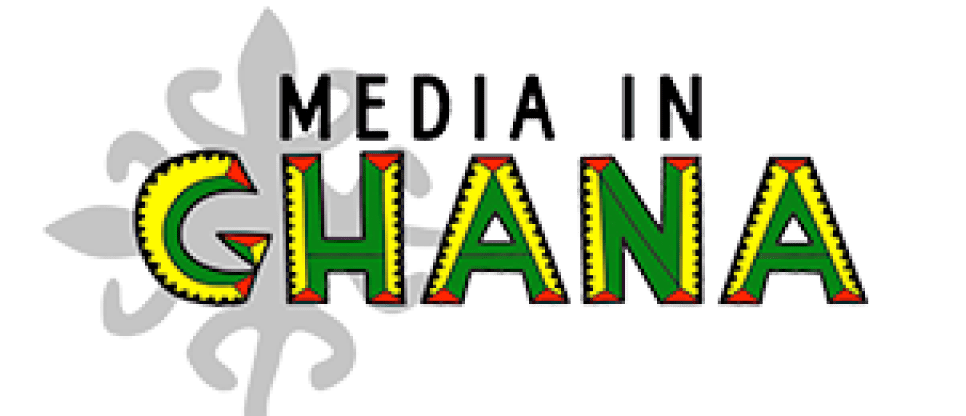Our group moved into the student housing at Webster University on Thursday. It was quite an upgrade from our previous living situation at the Aya Center. Donny and I quickly became close with two of the students already living in the building. Kenny, around my age, is from Nigeria but studied at the University of Texas before coming to Webster. His English is hardly distinguishable from American English. Omarion, 18 years old, is from Cameroon and just recently started his schooling at Webster. His English is easy to understand but sounds less like American English.
We spent the last few nights chilling with them on the balcony talking about hip hop, sports, our experiences in Ghana, and life in general. Omarion told me all about the President of Cameroon, Paul Biya, who has been in power for 36 years. Biya’s daughter, a billionaire, lives in Beverly Hills, Ca. I suspect this is how Biya washes his money, but upon scouring the internet I could find very little negative coverage of Biya, leading me to believe that he has a tight hold on Cameroonian media. Kenny and I spoke at length about the NBA and the systems in place in the U.S. to encourage participation in athletics from an early age: The combination of youth teams, high school sports, college athletics, training facilities, media coverage, and the money paid to professional athletes. Kenny said he would probably be a professional athlete had he grown up in the U.S. Getting to know these guys has been one of the highlights of my trip so far. To meet people halfway around the world with whom you feel you have so much in common is a special treat.
They had told me that they don’t like to go out on weekends and would rather just stay at the house. I’m a bit of a homebody myself, but it was our last free weekend in Accra and I wanted to introduce them to the rest of the group, so I convinced them to go to Kikibees with us on Friday night. Kikibees is a popular bar with live music within walking distance of the house. We all met up at our place first then walked there together. It was a fun night but had I known what would happen on our way to get food, I never would’ve dragged them out of the house.
Despite walking to Kikibees, we wanted to get food on our way home and the only open place was too far to walk to, so we piled in separate Ubers to get there. In my Uber was Donny, Kenny, Omarion, and myself. Including the Ghanaian Uber driver, we had four different nationalities represented in the car. As we approached a police checkpoint, they had everyone get out of the car and searched us extensively. There were 6 police officers to the 5 of us. They looked in our wallets, had us take our shoes off, and patted us down. No one had anything illegal on them and they found nothing suspicious. I thought we were free to go. They told Donny and me to sit back down in the car but continued to search Omarion.
“It’s because he talked back,” said our Uber driver as we sat back down in the car. “Freakin Nigerians man, they talk too much,” he continued. Omarion isn’t even Nigerian and I had come to realize that Ghanaians have an interesting attitude toward their southwesterly neighbors. “Fake love,” as Kenny put it. Omarion was becoming contentious with the officer, as any 18-year-old kid would do in the face of authority when so obviously being singled out. I remember talking back to the police at that age too. Who are they to be able to stop and harass me when I’m not hurting anybody? After about a minute, the main officer told us he was taking Omarion in for “further investigation,” despite still finding nothing on him. Kenny got up and tried to reason with the cop to no avail. He came back to the Uber where we were still sitting, watching in bewilderment. “They just want money,” he said. After some deliberation, Donny pulled out a 50 cedi note and handed it to Kenny, who thought we should try offering less money at first. We just wanted to get Omarion back and be able to get food, so we told him to just give them the 50 cedis. 50 cedi is only about $10 USD, but I guess it was enough because the cops let Omarion back in the car and told us to be on our way.
It wasn’t until then that I realized they weren’t looking for drugs in our wallets, but rather looking to see how much money we had. If we’d had more on us, maybe the 50 cedis wouldn’t have been enough to get our friend back. The police were clearly well-rehearsed in this scheme of theirs. I wondered how many more people they had extorted for money that night. As we pulled away from the checkpoint, I was filled with a familiar sense of anger.
I was upset not for myself, but for Omarion, and for the countless other people who are profiled and treated unfairly by systems of authority throughout the world. It felt violating to know that we were doing nothing illegal, yet still were at the mercy of these officers. I can only begin to imagine how it must feel for people of color in the U.S. for whom the possibility of death at the hands of the very authority sworn to protect them looms over the pervasive presence of police. Our interaction may not have been racially motivated, but the way they singled out Omarion seemed steeped in divisive nationalistic undertones. It’s unfortunate that the Ghanaian police and Uber driver did not have more respect for their West African brothers. They treated me and Donny with more respect knowing we were American. They even talked shit about our friends to us behind their backs. I feel that I have a lot more to unpack from this interaction, but for now, all I can think about is how unfair it was to our friends. It hurts.


Jim Pensiero
August 2, 2019 — 12:16 am
Well written account of a scary and ugly encounter. Always can be worse when you’re dealing with people who often are armed and who can haul you in for little or no reason–but it’s bad enough.